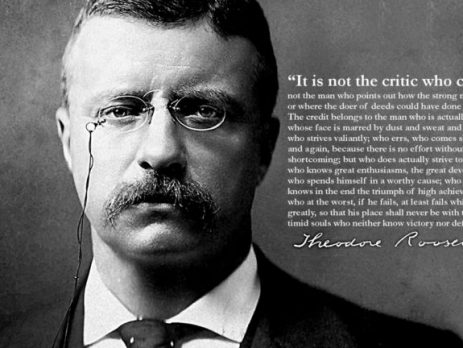The man in the arena: Be a bold supporter, not a critic
‘It is not the critic who counts; not the man who points out how the strong man stumbles, or where the doer of deeds could have done them better. The credit belongs to the man who is actually in the arena …” These are the unforgettable word s uttered by US president Theodore Roosevelt in 1910, a little more than a decade after America had emerged as a new world power. He wanted to emphasise that the success of a country rests on the quality of its leaders and the discipline of its citizens, as opposed to the distracting commentary of others. There is a reason that his words are still referred to in presidential speeches and literature. Nelson Mandela, whose passing we commemorated this week, gave a copy of Roosevelt’s words to the captain of the South African rugby team, Francois Pienaar, just before the team proceeded to beat the All Blacks...



